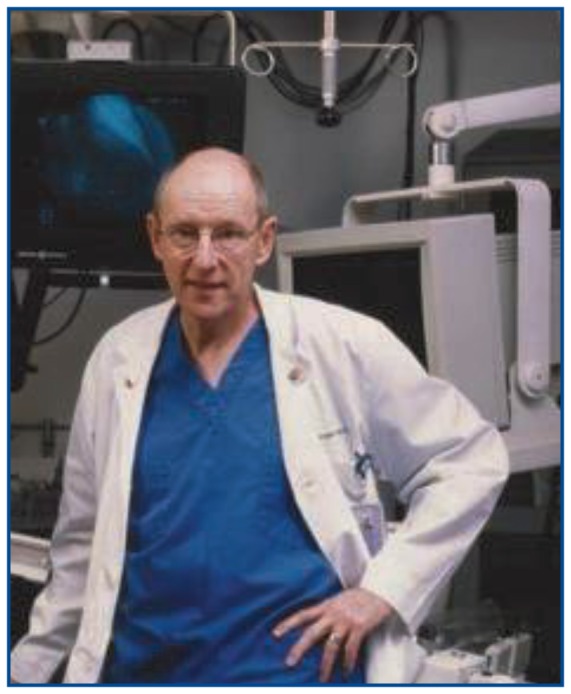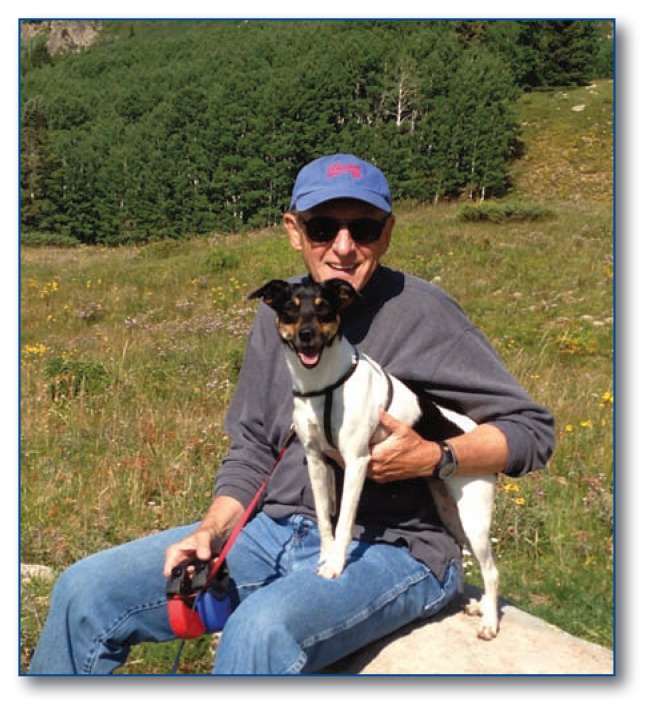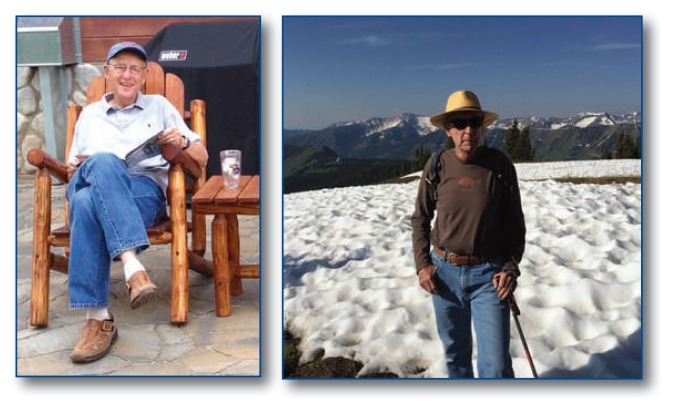I practiced cardiology in Kansas City from 1977 to 2012. I can say without reservation that I would choose the same profession again if I were able to start over. When I was contemplating retirement, many of my friends said that I wouldn’t be able to survive without medicine. Now after nearly four years of retirement I can say unequivocally that I am truly enjoying my life after medicine. Certainly I miss the interaction with patients and colleagues but retirement has given me time to do things that I never seemed to accomplish while I was working.
I was nearly 67 years old when I retired. I had always been concerned that if I worked too long my skills would deteriorate. Doctors Hagan and Kupfer have previously discussed this issue.1,2 They have addressed some of the potential concerns regarding quality of care that may apply as a physician becomes older. Since there is no conclusive data regarding clinical outcomes related to the age of the physician, retirement is a personal decision for each doctor. There is a delicate balance between the clinical expertise and technical skills acquired through years of practice and the inevitable age-related decline in physical stamina, dexterity and cognitive function. It can also be very difficult to recognize our own imperfections. With these things in mind, I wanted to emulate Ted Williams who hit his 521st home run on his very last at bat. I certainly was not the Ted Williams of cardiology, but I ascribed to his philosophy. During this thirty-five year period of practice, medicine had defined my life. I believed the time was right to start a new phase in my life.
While I was certainly not the best husband or parent, I tried to keep my family as the focal point of my life. I have more time now and have attempted to be even more focused on my family and more involved in their lives.
In contemplating how to have a meaningful life in retirement, I thought I should build on the things I had enjoyed during my time in practice as well as some of the things I had continually procrastinated. I had always maintained a regular exercise program and since we had moved to Colorado upon retirement, there were ample trails to hike and bike. I began hiking two to three hours every day while living in Colorado. While Colorado was beautiful, the winters were quite cold, so I now walk and bike along the ocean close to my home in Florida. I have also added pickleball to my exercise regimen.
I had always wanted to re-establish some of the friendships from high school, college and medical school that had faded over the years. I have been able to renew many of these relationships which has been very gratifying.
In addition, I felt it was essential to keep my mind busy. After retirement I learned to play bridge and now play a couple of times a week. This has been an excellent game for me with plenty of mental challenges.
Reading medical books and medical literature had been an integral part of my life, but I had always wanted to read for pleasure as well. This was another opportunity afforded by retirement. I began to read books on the history of the United States, Europe, Russia and the Middle East. In addition, I read many of the classical best sellers and biographical books that had always eluded me.
The Bible was a book that I had never read but it was always on my “to do” list. Upon retirement I began a daily reading program for the Bible and now have read it several times. Many of passages in the Bible that I learned in Sunday school as I child, I had forgotten long ago. Besides the Bible I found several authors who have helped me expand my spiritual awareness. Some of these authors are C.S. Lewis, A.W. Tozer, G.K. Chesterton, Tim Keller, and Henry Blackaby. As I read these books I often wondered how my interpersonal relationships would have differed if I had started this program 50 years earlier.
During this time I found a book that had been given to me by a patient several years earlier, Rick Warren’s The Purpose Driven Life.3 The goal of this book is to delineate God’s purposes for our lives.
Warren describes three basic issues that people struggle with during their lives. These are their identity (who they are), their importance (do they matter) and their impact (their place in life). Medicine had been the perfect solution as it had provided all three for me. As I read and pondered on this, I started to realize that there was more to life than working for accomplishments to be highlighted in my obituary. If I were to have a successful retirement I had to re-invent myself with a new identity, new importance and a new impact. I finally understood that God should be at the center of this “new me.”
Since practicing medicine is a service type profession, it follows that I would be drawn to service type activities. As physicians, we devote the majority of our practice time attempting to solve the problems of our patients. I now try to donate time and financial resources to my community, church and organizations dealing with world problems and disasters. Table I summarizes my goals during my time practicing medicine and now in retirement.
My Life Goals During and After Medicine
| Life during Medicine | Life after Medicine | |
|---|---|---|
| Family Activity | Be the best family member I could be | Be the best family member I can be |
| Physical Activity | Regular exercise by running, biking and walking | Regular exercise by walking, biking and playing pickleball |
| Intellectual Activity | Continued study to keep current in my specialty | Reading material I choose, studying the Bible and playing bridge |
| Identity (Who I am)* | A physician | A person who wants to serve others |
| Importance (How I Matter)* | By helping patients and working with other physicians | By donating my time and financial support for my community and church |
| Impact (My place in Life)* | Trying to be the best physician I could be | Trying to fulfill my commitment to my community and church |
Adapted from Rick Warren, A Purpose Driven Life
In summary, Ecclesiastes 3:1 says “For everything there is a season, a time for every activity under heaven.” My time after medicine has been a time to smell the roses. I have been able to pursue many of the things I enjoyed while I was working but now have more time to devote to them. More importantly, I have been able to develop other intellectual and spiritual pursuits. This facilitated my developing faith in God. I don’t think this would have ever happened without time to read, study and meditate. I have tried to develop a life goal template that can serve to guide me as I move forward. I am certain I will fall short in many of my aspirations, but in retirement as in practicing medicine one needs to attempt to adhere to a well thought out plan.
Biography
Douglas Bogart, MD, MSMA member since 1978, is a retired cardiologist in Kansas City, Missouri, and a frequent contributor to Missouri Medicine.
Contact: kardia2x@gmail.com

References
- 1.Hagan JC., III Hanging Up the Scalpel: Knowing When to Say “When”. Missouri Medicine. 2007;104:4–6. [PubMed] [Google Scholar]
- 2.Kupfer JM. The Graying of US Physicians. JAMA. 2015;315:341–342. doi: 10.1001/jama.2015.18248. [DOI] [PubMed] [Google Scholar]
- 3.Warren R. The Purpose Driven Life: What on Earth Am I Here For? Grand Rapids. Michigan: Zondervan. 2002 [Google Scholar]




